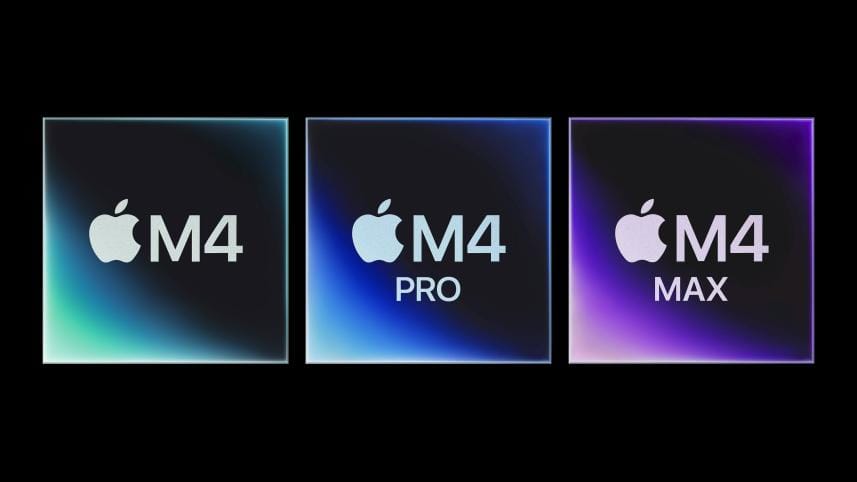Apple launches M4 Pro and M4 Max

Apple today introduced two new additions to its M4 chip family — the M4 Pro and M4 Max — delivering advanced performance for Mac users engaged in professional and intensive computing tasks. Built with second-generation 3-nanometer technology, both M4 Pro and M4 Max bring enhanced power efficiency and computing capabilities to MacBook Pro and other Apple devices. Apple claims that the new chips offer significant improvements in processing and graphics performance, making them the company's most powerful chips for personal computing.
According to Apple, the M4 family's CPU is designed for single-threaded and multithreaded tasks, achieving leading-edge speed with the "world's fastest CPU core." The Pro and Max versions are equipped with upgraded GPUs, supporting twice the ray-tracing speed of previous models. Additionally, the M4 Pro and M4 Max introduce Thunderbolt 5 on Mac, providing faster data transfers up to 120 Gb/s and improving compatibility with high-performance peripherals.
The M4 Pro features a 14-core CPU, with up to 10 performance cores and a 20-core GPU, making it suited for demanding workloads like coding, research, and content creation. With 273 GB/s of memory bandwidth and support for up to 64 GB of unified memory, Apple claims the M4 Pro delivers up to 2.1 times the speed of the latest AI PC chips.
At the high end, the M4 Max is designed for data scientists, 3D artists, and video editors. Equipped with a 16-core CPU and a 40-core GPU, the M4 Max offers 546 GB/s of memory bandwidth — four times faster than current AI PC chips. With support for up to 128 GB of unified memory, M4 Max provides an option for handling large language models and data-heavy applications with ease.
Alongside these hardware upgrades, the M4 chips support Apple Intelligence, a new suite of AI-driven tools for Mac. Users can utilise systemwide Writing Tools, advanced Siri capabilities, and creative applications like Image Playground and Genmoji. Apple Intelligence leverages the Neural Engine of the M4 family to support on-device processing, protecting user privacy by handling data locally when possible and using Apple's Private Cloud Compute for more resource-intensive tasks.
 For all latest news, follow The Daily Star's Google News channel.
For all latest news, follow The Daily Star's Google News channel.
Comments